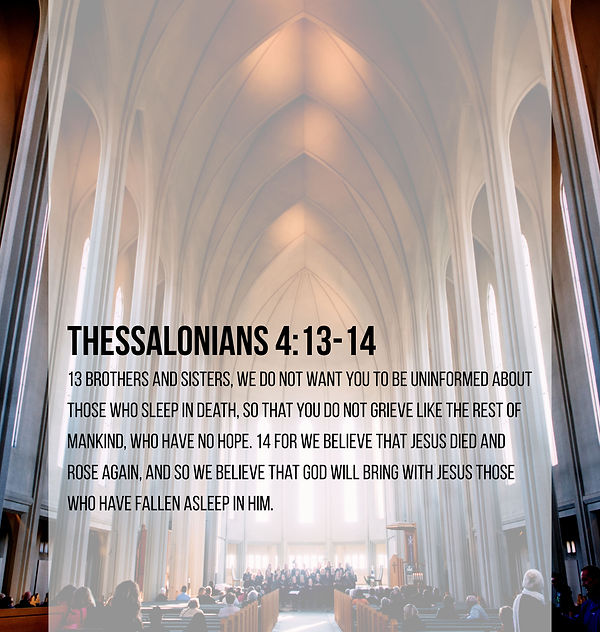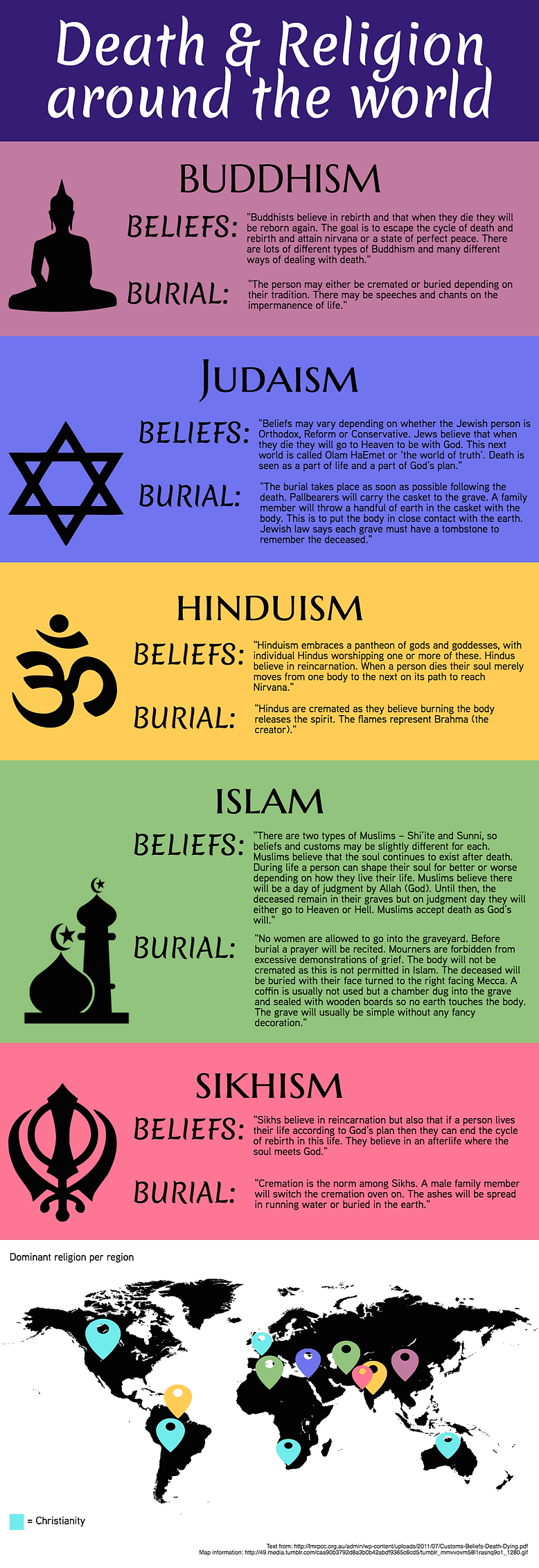RELIGION
This section takes a look at how religious beliefs shape understandings of death, especially the Christian framework that dominates our Western society.
Blessed are the Dead
Death in Christianity
contributer MIA VAMOS-YUHASZ
In which we have a conversation with a Christian Reverend about death perspectives in his faith.
 |  |
|---|
Reverend Paul Tinker | Photos by Mia Vamos-Yuhasz
Canada is a country that celebrates diversity, but we are still dominated in the mainstream by our Western, colonial roots. Stephen Jenkinson saw this domination as causing a “wretched cultural poverty” in Canadian society, but for others, these roots define their understanding of death.
According to Statistics Canada’s most recent national household survey, 67 per cent of people surveyed reported to be of the Christian faith–that’s just over 22 million people.
Reverend Paul Tinker is among that flock. The Reverend is currently situated at Farringdon Church in Brantford, Ont. Farringdon is a non-denominational church, meaning it is not denominationally connected to any other organization and has no governance structure outside of its internal governances. Reverend Tinker has been at Farringdon for seven years.
We met with Reverend Tinker to have a discussion about death and funeral rites in Christianity, and to learn how their beliefs define their understanding of dying and death.
From the beginning, we got straight to the point.
“Our life here is our earthly life, and death would lead to the afterlife, or the life eternal, in the presence of the Lord,” says Reverend Tinker.
“Christians, properly understood, don’t fear death, because we’re given promises by our Lord. We’re given promises that there is a life eternal–that it doesn’t end just in the earthly realm.”

But because “we’re all fallible creatures,” he says, there is still some fear.
“I think it’s fair to say that everybody, deep down in their core, fears the unknown,” says the Reverend.
They often fear pain too, or causing their loved ones pain with their death.
“I think the fear is also magnified, the less you know,” says the Reverend, alluding to the idea that a lack of faith brings about more fear, because there is “less trust, or awareness of what Christ promised,” he says.
It’s becoming an evident theme that the lack of a solid framework in life for thinking about and dealing with death often causes the most suffering, wherever that framework may come from, such as ancestral knowledge or religious conviction.
Reverend Tinker mentions that Christians also believe in an eventual full body resurrection into the “heavenly realm,” because of their belief in Jesus.
Technically, this would mean burial is the only acceptable ending to a life, but there are differences of belief in this area. Cremation is generally seen as fine nowadays, as well as being a practical financial option.
Reverend Tinker takes no issue with cremation, because he believes that God can regenerate cells in an instance, as would be the case with any destroyed or decayed body.

Farringdon has it’s own burial grounds, surrounding the church. It’s a picturesque scene in the middle of winter, snow slowly falling and dusting the tops on the gravestones. I ask the Reverend how often the graves are visited.
Unfortunately, it’s not as active a tradition today as it was in the past.
“Culturally, we are less attentive to looking to the past. We are less thoughtful of the past,” says Reverend Tinker.
We also live in a culture of convenience, and that “convenience leads to a disconnect, and the disconnect leads to the habits not to visit gravesites,” he says.
Another obstacle is simply that people are living longer than ever before, and so they have less family and friends left to visit them.
Reverend Tinker and I then move into a lengthly discussion about funeral practices.
“A Christian funeral is a statement of faith and a statement of understanding of what death is, and it’s largely for the living,” he says.
First, he meets with a family to learn about their particular vision for the funeral.
“Depending on how observant they are, how connected they are in their faith, will really depend on what they want to do. Some people plan all this stuff in advance, and lay it all out so that when their family members needs to deal with it, there’s not much to deal with,” he says.
Reverend Tinker begins a funeral by leading the casket or urn inside, then he reads several passages from scripture that say very succinctly what the Christian faith is.
“I’m declaring right at the beginning this is a Christian funeral and this is going to be about what we understand death to be.”
Words of remembrance are then shared, psalms are read, hymns are sung, and prayers are said.

“We journey through an understanding of sorrow and morning and what we understand in the moment, but finishing up with what we hope for in the life eternal,” says Reverend Tinker.
“We understand that the person is no longer with us, in the earthly realm, and we are commending the person to God in the heavenly realm,” he continues.
At the burial site, more prayers and words of remembrance are shared, though this is entirely dependant on the crowd. Some people need a little more opportunity to say goodbye.
This is usually most evident if a person has had an untimely death, such as the death of a young person.
“The funerals will be bigger, because they have more people around, more contemporaries. There will also be a greater need for reasons why this happened, and so a Christian funeral that has those components, has a statement of understanding of faith and the life eternal, help put some explanation into it,” says Reverend Tinker.
Traditions and rituals offer comfort in a time of grief, and are often critical to the grieving process. Even when no understanding can be gleaned, they help with letting go of pain, at least.

Conversations about death are actually quite central to Christianity, at least in the sense of talking about the paramount nature of the death of their saviour.
“Death enters the equation frequently, because the goal of a worship service is to worship God and to celebrate, to participate together in worship, and to share, to teach what we understand the Gospel to be. And that’s about God transforming our lives, and a big part of that is an understanding that we are made part of the family because of what Jesus did, which is dying on the cross and rising on the third day,” he says.
“Every Sunday is a mini Easter celebration. We are saved from a permanent death because we have a life eternal.”

Death & Religion
contributer MIA VAMOS-YUHASZ
Outlined below you'll find the basic facts about death beliefs and burial in some of the most practiced religions around the world.
